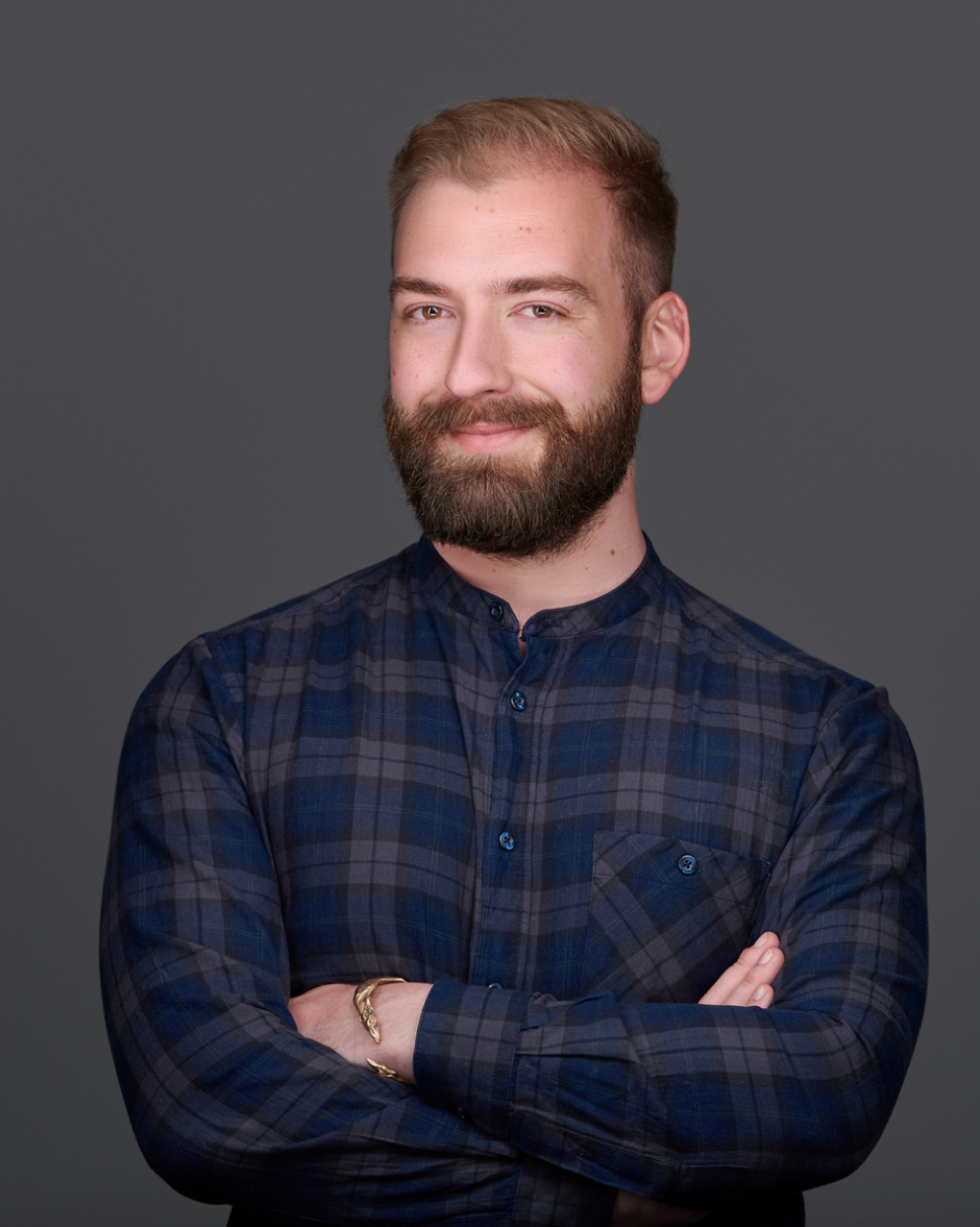In this month’s BabelChat, I sat down with BabelQuest’s principal marketer, Bridget Pyne, to talk about reading books, breaking rules, and building communities online.
I don’t think you ever truly know what someone will bring to the table when you first meet them, and it was a year or two before we worked together properly, but in the four years since she joined the team, Bridget has brought order to even the most lively accounts.
This has in no way impeded her creativity or flair for breaking the rules to realise a campaign differently. Since 2019, Bridget’s rare combination of imagination and discipline has built meaningful communities around, and driven success for, some of our biggest clients.
What’s influenced her style of inbound marketing over the years? How has the industry changed in that time and what can other marketers take away from her experiences?
In this first Q&A in our new BabelChat series, our principal marketer reveals the events, the stories, and the lessons that have influenced the way she leads our marketing today.
Thomas Brown: It all started somewhere — how did you find your way into marketing?
Bridget Pyne: Eight-year-old Bridget wanted to be a writer. I love books and I love reading. For a few hours you get lost in a different world, and when you come back to the real one, you see it a little differently. This led somewhat naturally to me reading English Literature at university. But I wasn’t the strongest writer, so when I graduated, I went into recruitment. In my heart, I’m a people-person, and there was something very satisfying about getting to meet and help job-seekers every day. I specialised in recruiting for digital marketing roles, which meant I spent a lot of time speaking with people in this field, and they all sounded very happy. They really liked their jobs. I wanted a piece of that. I wanted to know what all that buzz was about.
I’m still not sure what I pictured when I thought about what marketing life must be like, but it probably wasn’t the hyper-traditional funeral company where I ended up. It was my first marketing role, and it involved a combination of digital and print marketing. I was responsible for promoting their new product, direct cremations. This was seven years ago. I was really junior, and I learned a lot about the foundations of marketing. How marketing used to be done, you might say now. I learned the rules. But there wasn’t much room to be creative, as you can imagine. When that urge became too strong, I moved agency-side. Immediately, I saw a different way of doing things.
I bet. In the past seven years, how have you seen the marketing landscape change?
Perhaps it’s because of where I came from, but it’s become much more fun. For some industries in particular, traditional marketing will always have its place, but even in the B2B space you can see campaigns become much less formal, strategies becoming much more people-focused. We have more channels to play with and more opportunities for personalisation. More and more businesses are using buyer personas and personalisation tokens and smart content to deliver effective messaging and hit their goals.
Everything feels more fluid and dynamic these days. A lot has changed and I feel like I’ve changed with it. All those marketing rules I learned — I’m able to break them now to deliver campaigns that cut through the noise and help our clients to be seen and heard.
Sounds rebellious! What do you think has driven that change?
I think, to some extent, it’s because people have changed. Just because a buyer works in B2B, it doesn’t mean they need to be spoken to in an overly formal or impersonal way. We want emails that address us, with content relevant to us. We want a personable service. A good experience. Instant gratification. We want to feel special. And we don’t want to see marketing that isn’t relevant to us. The technology’s too smart for that to still be going on.
Even in the four years that I’ve been at BabelQuest, you can do so much more as a marketer with the tools at your disposal. Working for a HubSpot solutions partner, I’ve had a front row seat to that. The sheer volume of data you can gather now means you can be so smart about how you’re retargeting people, for example.
CMS technology, too, has come on so much. Using HubSpot CMS Hub, you don't need to be a developer to create a really impactful landing page. When I first started, the technology was nowhere near as intuitive as it is now. Things have become easier to use. More accessible. That really helps your creativity, instead of hindering it.
So the marketing landscape moves fast. How do you keep up?
I'm subscribed to so many newsletters. It’s not unusual for me to receive five or six different emails a day filled with anything from practical advice and technology guides to marketing hacks and industry overviews. LinkedIn is also fantastic for hot-takes on a subject or trend, if you’re connected with the right people. There’s so much value to be had from scrolling your newsfeed. You just need to remember to be a little selective about whose advice you’re taking and where it’s coming from.
Obviously I don’t have the time to read all these newsletters and LinkedIn posts every day, but when I get a quiet afternoon to myself or I have some personal development time to take, I find somewhere quiet, sit back with a Diet Coke, and dive in.
After all these years, you’re still reading. I love that. What advice do you have for businesses trying to reach and engage digital audiences today?
I’d ask you how you can make your customers feel special. There’s no one right answer to that, but if you can find what works for your customers, it’s the quickest way to build up a real community around your brand. Not many businesses look at their customers in this way, but fostering a community gives meaning to a company above and beyond its role as a corporate entity. They give you a “who” and a “why” all at the same time and that’s so powerful, because if you go back to the stories I grew up reading, they’re the oldest questions in the book. We’re all just trying to find our tribe. Your business could be it.
Of course, there are lots of commercial benefits to community-building, too. For many businesses, referrals are the best source of revenue. Rather than expending all your resources on trying to attract new customers through conventional methods, nurturing a community of customers who do your marketing for you could be game-changing.
How important are your company’s values to building a community?
Intrinsic, I'd say. Communities are your opportunity to walk the walk, when so many other businesses — including your competitors — are just paying lip service to their values.
Your customers have to be able to recognise your values in how you operate. Everything you do gives you away. For example, you can say you're a sustainable brand but how is that reflected in your actions? Marketing in general has become much more about communicating these values, probably because people have become super critical of this. If I see something off-brand, it leaves me questioning the company.
Where else are companies going wrong with their marketing these days?
Not being consistent, definitely. And, I think, trying to do too much. You don't need to be everywhere all at once. If TikTok or Instagram isn’t where your customers spend their time, and those channels aren’t relevant to your brand, drop them, because you’ve probably got enough on your plate as it is. Don't spread yourself too thin.
When I think about some of my own clients over the years, this involves pushing back — gently at first, then more firmly if need be — when they make a request. Say they want to set up a Facebook page and create an associated campaign, I might ask them “why?”. I think this open communication and level of transparency is important.
How else would you describe agency life?
No two days are the same, mostly because I make it that way. I love trying to come up with something fresh. It can be hard, sometimes, because you think everything's been done, but it hasn't. New platforms are appearing all the time. Buyer behaviour changes. We have different budgets to work with. Different ways of creating and automating and discovering. I love seeing something cool on a different website and being inspired by it.
You sound like one of those marketers you helped into new roles, back in your recruitment days. Did you ever find out what the buzz was all about?
I never get bored. There’s always something new to try. Every test you run is slightly different to what went before it. Your results, slightly better than the last time. I’m constantly pushing myself. I’m constantly playing. I might not have written that book, but so much of marketing is telling stories. Having fun. I think eight-year-old Bridget would be very happy with that.
Heading
Separated they live in Bookmarksgrove right at the coast of the famous Semantics, large language ocean and many more stuff and more more more


Tom is BabelQuest's Principal Copywriter. He has a PhD in Creative Writing from the University of Southampton and is a novelist with Sparkling Books.



.png?width=50)

.png?width=50)
.png?width=50)


































